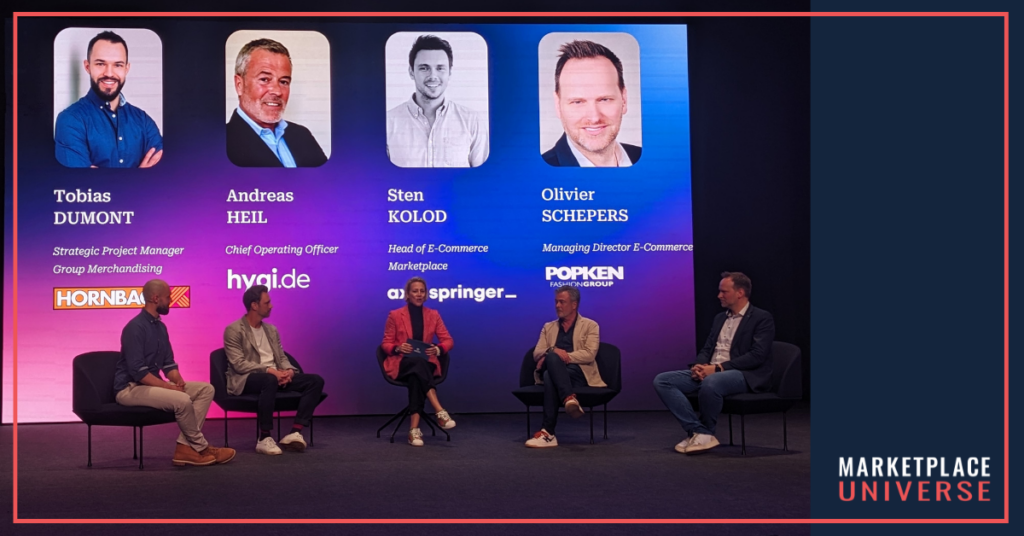
At the Mirakl Platform Summit, two very different approaches to marketplace development were presented on stage in the closing panel. Namely the question of what is better: Platform building step-by-step or quickly? On one side was Sten Kolod, head of the marketplace at the recently launched BILD marketplace. In just 11 weeks, he and his team took the marketplace from decision to go-live – a speed that should impress anyone who has ever dealt with marketplace construction in depth.
The speed has left its mark
However, this was not without its drawbacks: at the launch at the end of March, many of the 30,000 or so items showed very low stock levels or were completely sold out. Initially, there was hardly any connection to BILD.de; there is now a link to the marketplace in the navigation bar.
A product range strategy is also not yet recognizable – which was the intention. “Our goal was to achieve the fastest marketplace launch ever,” said Kolod on the panel. “The product range strategy was downstream.” This is now to be developed gradually while BILD observes how readers, advertisers and retailers accept and use the marketplace. “Don’t think about it too much, just do it – BILD style,” Kolod concludes.
diametrically opposed strategy
In contrast, the other panel participants are pursuing a diametrically opposed strategy. They rely on a step-by-step approach to platform building rather than speed. Hornbach has put a lot of thought into its product range strategy, applies the rules for the store product ranges to the marketplace and takes its time with seller onboarding. Hornbach manager Tobias Dumont is willing to accept a longer backlog if the quality of the marketplace range matches his own standards.
Due to similar considerations, the marketplaces of hygiene specialist Hygi and fashion company Popken Fashion Group, which is currently relaunching the plus-size marketplace Happy-Size acquired from Klingel, are still a long way from completion. As a B2B provider in a sensitive business area, Hygi cannot afford to make any quick decisions, emphasized COO Andreas Heil. And Popken Fashion does not want to jeopardize its reach and credibility in the plus-size target group through a lack of curation in the marketplace, according to Managing Director Oliver Schepers.
Instead, Popken is intensively discussing which sellers it wants to connect to its own brand – and who not. The decision to continue the marketplace business with the takeover of Happy-Size was made quickly – the company prefers to take more time to work out the details. Schepers’ team is currently planning to go live in Q4 2024.
Our assessment
We tend to take a critical view of quick-fire platform construction. Why? Because we are on the side of the retailers and brands that sell on marketplaces – and they are degraded to involuntary beta testers by an unfinished platform without a product range concept. They invest money in the technical connection – which usually has to be set up manually by the retailer agency – and time for setting up and optimizing the products as well as for monitoring, and bear the entire risk. There is a lack of partnership between the platform and the seller.
There is another way: marketplaces usually run months-long pilot projects for necessary test phases – and the participating retailers benefit from long-term special conditions for their services as beta testers. This is fair because everyone knows what they are getting into.